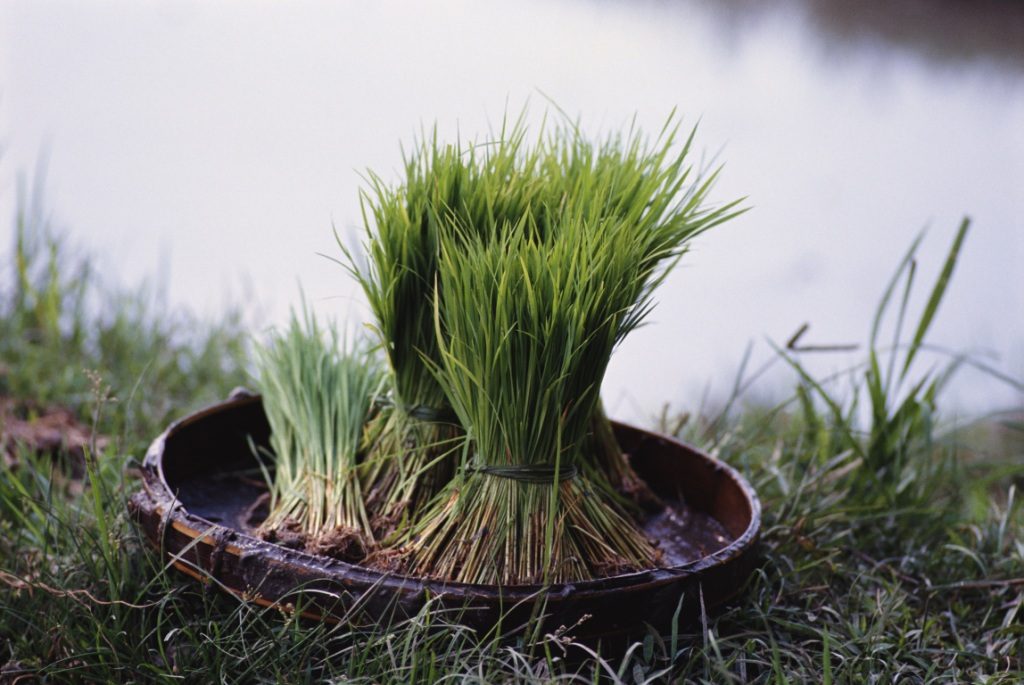Rising food prices could press the poor into hunger, warns Oxfam
This year, hardly a week seems to have gone by without the release of another report on global food systems and food security. Each has a different focus: in May there was an FAO report highlighting the problem of food waste, while earlier in the year I posted articles on the ‘Hand Picked’ CABI blog…
CABI publishes third working paper
CABI’s own, Matthew Cock, covers strategic entry points for funding taxonomic support to agriculture in developing countries in the third working paper published by CABI. The importance of taxonomy to agriculture is discussed, with emphasis on how to address the need for taxonomic support in developing countries. One of the subjects explored by this paper…
Climate change and the fight against plant diseases
Earlier this month, Dr Adrian Newton from the James Hutton Institute spoke about the implications of climate change for pathogen defence in plants, at the Society for General Microbiology Spring Conference in Harrogate, North Yorkshire, UK. He explained, “The communities of microbes on plants are complex and include harmless and beneficial organisms as well as…
Introduction of remote microscopy (RM) into ASEAN Regional Diagnostic Network (ARDN)
The lack of taxonomists is very much a global issue, hence the establishment of the Global Taxonomy Initiative (GTI) and the BioNET International and its LOOPs. In ASEAN countries, the shortage of in-country taxonomic expertise to identify plant pests and diseases is often compounded by difficulties in access to taxonomic expertise abroad. Thus, ASEANET and…
Aid donors join forces to fight wheat rust
Emerging strains of stem rust disease of wheat, such as Ug99, are spreading out of East Africa and threatening the world’s wheat supply. But the fight against this disease received a boost this week from a collaboration between the UK’s Department for International Development (DFID) and the Bill & Melinda Gates Foundation. The organisations have…
Does rust-free rice hold the secret?
All cereals, except rice, are susceptible to rust. Wheat, maize, barley, millet, triticale, and oats all get rust. The spores of rust fungi land on a host plant, germinate, and grow toward a stomatal pore on the leaf surface to initiate infection. Rust infections produce red or yellow pustulating spores that give infected plants a…
Hessian fly heading for the sack
Wheat crops suffer millions of dollars’ worth of damage each year due to the hessian fly, Mayetiola destructor. The most effective control method is genetic resistance, when wheat resistance genes cause death of the attacking larvae by activating a defense response against avirulent hessian flies. Unfortunately this has led to flies that can overcome resistant…
1000 new ‘Plant Doctors’ trained in Karnataka
Nearly 1000 farmers in Karnataka are set to be trained as ‘Plant Doctors’ in a major programme funded by the Karnataka State Department of Agriculture and Bio-Control Research Laboratories (BCRL), part of Pest Control India Ltd. (PCI), and supported by CABI. By the end of March 2011 there will be enough trained plant health workers…
NZ kiwifruits hit by bacterial canker
Biosecurity New Zealand announced on Saturday that samples of New Zealand pollen have tested positive for the bacterial kiwifruit disease, Pseudomonas syringae pv. actinidiae (Psa). Results indicate that Psa may have been present in New Zealand for a number of years. The confirmation of Psa in New Zealand comes as a huge blow to the…
Can science feed the world?
This was the question posed by Nature’s Special recently. In other words, how can we feed the Earth’s growing population in such a way that no-one goes hungry and nature is left with some land and water of its own? Their answer can be broadly summed up by what Britain’s Royal Society call “sustainable intensification…


